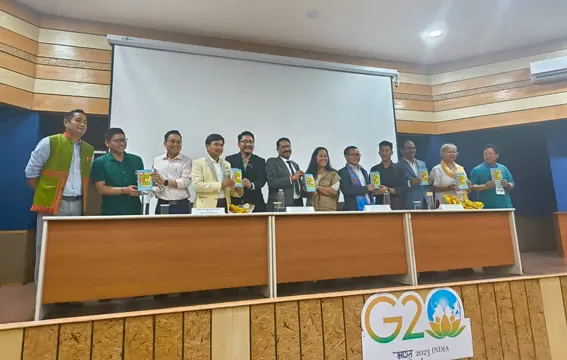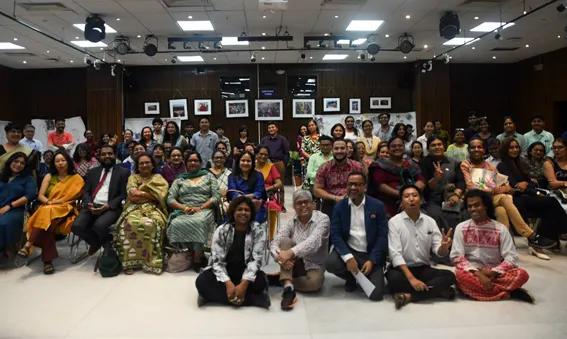RONO HILLS, 15 Apr: The Centre for Development Studies (CDS) of the economics department of Rajiv Gandhi University (RGU) hereorganised three special lectures recently as part of its lecture series.
“The 16th special lecture of CDS was delivered by former director of Mumbai (Maharashtra)-based Indira Gandhi Institute for Research & Development, Prof S Mahendra Dev on the topic ‘Regional dimensions: Growth, inclusion and sustainability’,” the university informed in a release.
Prof Dev “highlighted that there has been increase in regional disparity, as indicated by the divergence in per capita income across the states. However, he said that there is convergence in indicators of human development across the states of India,” the release stated, adding that “he showed that important determinants of growth are investment in social and physical infrastructure, human capital, capital expenditure, financial inclusion, and credit deposit ratio.”
The release further quoted Prof Dev as saying that “the challenges of inclusive development are low capital formation in agriculture, incidence of malnourishment, and increase in inequality, and there is a need to expand productive employment, structural transformation, improvement in women work participation and employment condition, promotion of skills, and training to improve employability of youth employment and promote MSMEs.”
“Prof Dev stated that reducing interpersonal and regional inequality are the key to achieve the status of a developed nation by 2047, and the states have to play an important role as they control 60 percent of the total government expenditure,” the release quoted him as saying.
It said that the 17th lecture was delivered by New Delhi-based Institute for Human Development Director Prof Alakh N Sharma on ‘Growth and employment in India’.
“He presented the employment situation in India and stated that, as per India Employment Report-2024, youth unemployment rate in India is 21 percent,which is very high. However, the overall unemployment rate in the country is only 4 percent,” the release said. “He viewed that the high youth unemployment rate indicates that the country has not been able to capture the benefit of demographic dividend. High youth unemployment is due to lack of decent employment opportunity, as well as due to employability problem,” the release quoted him as saying.
It further said that the professor “argued that it is a matter of serious concern for the country and hence called for policy intervention to generate employment opportunities for the educated youth, as well and promote education and skills.
“He also highlighted the deterioration in employment conditions in some states of India and called for remedial measures,” it added.
The 18th lecture was delivered by former director of Delhi University’s School of Economics Prof Pulin B Nayak on ‘A brief review of thoughts’, it said.
“In his lecture, he highlighted the progress of economic thoughts since the time of Adam Smith. He mentioned that economic ideas of Smith were highly remarkable and relevant. He pointed out that his idea on division of labour and its impact on labour productivity was a huge contribution to the economic thought.
“Prof Nayak stated that Ricardo also made a significant contribution. The theory of comparative cost advantage on trade was the masterpiece contribution of Ricardo and is highly relevant even today,” it said, adding that the professor also “highlighted the contributions of Robert Malthus, Karl Marx and Keynes, as well as of Indians like Mahatma Gandhi, Dadabhai Naroji, and Amartya Sen to economic thoughts.”
RGU Economics HoD Prof SK Nayak and CDS coordinator Prof Vandana Upadhyay also spoke, it said, adding that the lectures were attended by PG students, scholars and faculty members of the university’s economics and other departments.




